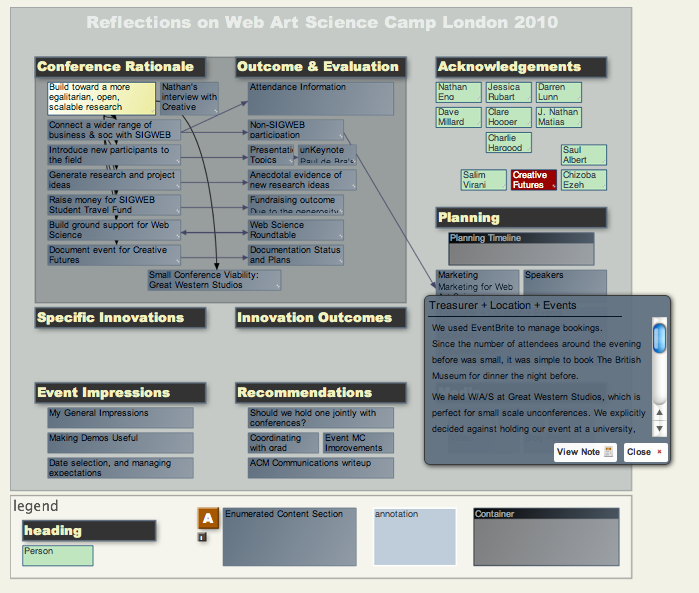Web Art Science Camp London 2010
November 2010
(conference and visualization) widening access and collaboration across the art and science of the web

In 2010, I led the organising team for Web Art Science Camp. We brought together around 30 academics, gradstudents, artists, and business people from across the EU. We also raised over £400 for the ACM SIGWEB Student Travel Fund.
Here is our statement of purpose:
Our goals were to:
- Connect a wider range of business and society with SIGWEB by holding a conference with limited barriers to entry
- Introduce new participants to our field, connecting them with mentors and exposing them to our academic traditions
- Generate research and project ideas by holding the event well in advance of major SIGWEB conference submission dates, as well as encouraing demos and idea sharing
- Raise money for the SIGWEB Student Travel Fund through ticket sales, making participation affordable for students whose research is successfully published
- Build ground support for Web Science by holding an event with the students and academics who will actually do the work of web science-- not just an event for funders and decisionmakers
- Document the event for Creative Futures, our sponsor, who aims to connect ideas with innovation in the Paddington region of London
 As described in our conference retrospective document, we were significant to some degree in each of these goals.
As described in our conference retrospective document, we were significant to some degree in each of these goals.
- Alan Dix, coauthor of the HCI book, reviewed Web Art Science Camp
- Creative Futures has published a blog interview with me about the event
- Web Art Science Camp on Flickr
- I also developed a new way to visualise and report conference outcomes: